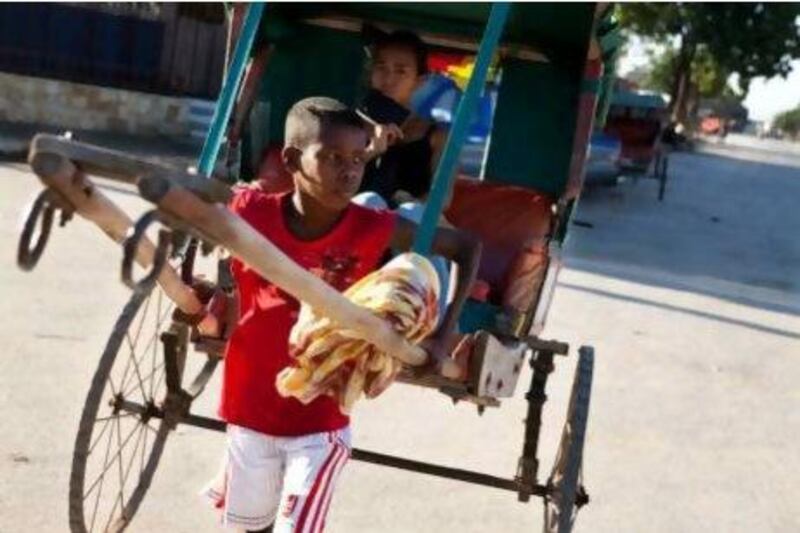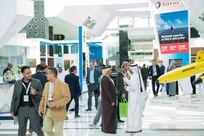DUBAI // A volunteer group in the UAE has launched a project it hopes will vastly improve the lives of impoverished rickshaw pullers in Madagascar.
The island state off the south-east coast of Africa is one of the few countries left in the world where rickshaws are pulled by men on foot, rather than the bicycle type.
The men, and in some cases teenage boys, eke out a meagre living by renting a rickshaw, which they call a "pousse pousse", on a daily basis from a businessman known as a patron.
They pay the equivalent of US$2.50 (Dh9.25) a day, which comes out of their earnings of $3 to $4.
They have to survive on the money that is left and many have no homes. Instead, they sleep on their rickshaws and store all their belongings under the seat.
"I don't like pulling my pousse pousse but because I'm hungry I do it," said Dada, 15.
"Food is the only thing that makes me happy. When I'm full I stop and when I'm hungry I work."
Now Monyati Initiatives, which was founded in 2009 by Abu Dhabi resident Monja Wolf and receives help from volunteers from across the UAE, has come up with a scheme to help people like Dada.
The group is supplying bicycle rickshaws for $2 a day, and after 312 days the puller takes ownership of the vehicle.
The first 20 rickshaws were handed over in August at the town of Tulear in the south-west of the island. All of the money received in daily payments will be used to buy more rickshaws.
"We wanted to empower them to have their own vehicles so they can increase their daily income and run their own micro-businesses," said Ms Wolf. "We take a lower daily fee than what they are currently paying so they can already increase their daily income slightly.
"After 312 days they become the owners of their own rickshaw; we transfer ownership to them. They don't have to pay fees any more and they can really increase their income.
"Their lives are incredibly basic, so these extra dollars will make a huge difference."
Dada is one of those Monyati plans to help.
The group, which has received backing from Etihad Airways, has completed projects in India, Pakistan-administered Kashmir, Bangladesh, Mexico, Sudan, Ethiopia, Nepal and Brazil.
In India, volunteers built classrooms for children who were previously taught sitting on the ground beneath a tree, and in Brazil they constructed low-cost houses.
Unusually among charities in the UAE, the organisation is completely open about its finances and posts receipts and other paperwork for each project on its website.
"We have a very transparent approach," added Ms Wolf, 31, from Germany. "Sometimes we get donations of a couple of thousand dollars but sometimes we get an envelope containing Dh50 - and for that person it is important that the Dh50 is reaching the beneficiaries.
"We give 100 per cent of donations received to the beneficiaries. Any other costs that we have in terms of admin or travel we pay out of our pocket. We don't have staff. Everyone working with us is working on a volunteer basis. We don't pay salaries."
One volunteer is photographer Amelia Johnson, 29, from the UK, who recently travelled to Madagascar to create a record of the initiative.
"It's a really exciting project," the Dubai resident said. "Because their incomes are so low they have really hard lives, so I find it very rewarding because you can see the tangible changes that it's making."






